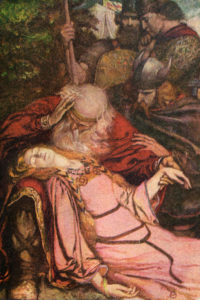My kids are the age where they followed Taylor Swift’s last tour pretty religiously. Every couple of weeks (days?), they’d come screaming into the room about which mystery guest she’s brought on stage, or how a certain guest was expected, but they got somebody else. That was part of the experience. The music was basically going to be the same at every tour stop, so it was the “What makes each show different?” element that made it the kind of event that you could look forward to every day.
The 2025 Glastonbury Festival is going on right now, and somebody called Scissor Sisters, who I don’t know, brought out SIR IAN MCKELLEN, who I very much do. I showed the video to my daughter and said, “I would have died. Ok? Died. I may die just watching the video.”
You know that thing where people say, “He could read the phonebook and people would pay to hear it?” This. I have a clip of Judi Dench reciting Sonnet 29 on the Graham Norton show that I go back and play periodically just because of how beautiful her voice sounds when she says “lark.” I don’t even know what Sir Ian is saying in this song. And I don’t care. Whatever he’s shouting for us to do, I’m going to run up a mountain to do it.
I heard this story because the crowd started chanting his name, and he burst into tears. I’m looking for a video of that, but I’m well aware that it may have the same effect on me.
Until then, enjoy the show. He shows up at about 3:30 if you want to skip. Or you can pretend you’re in the audience, and anticipate the big finish. Either way, I’ll be over here, dead.




